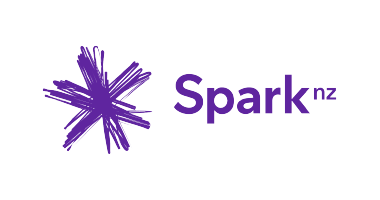Spark NZ Customer Case Study
How Spark NZ Accelerated Cloud Migration, Reporting, and Machine Learning with Alation

Challenge: Siloed, scattered data
Spark NZ, New Zealand’s largest digital services company, provides mobile, fixed, broadband, and IT services to millions of individuals and businesses across New Zealand. By embracing machine learning, AI, and intelligent automation, Spark NZ is well poised to achieve its mission: “To help all of New Zealand win big in a digital world.”
Spark uses data for strategic decision-making and planning, and to boost revenue with appealing customer offerings. However, siloed, scattered data meant that even their most highly trained and experienced analysts and engineers spent the majority of their time searching for data instead of using it.
To become more data-driven, Spark initially selected Alation to catalog their on-premise data stores. Then Spark decided to consolidate their data in the Snowflake Data Cloud.
Objective: Become more data-driven
While preparing for cloud migration, Spark aimed to avoid new data governance problems caused by transferring obsolete data in a "lift and shift" approach. They also sought to speed up data discovery and analysis for quicker insights. They needed a solution that would help them:
Migrate the right data to the cloud
Boost analyst and developer productivity
Expand the use of machine learning to guide strategic initiatives
Implementation
Laying the foundation for data-driven transformation
Spark selected the Alation Data Intelligence Platform as the primary search and discovery tool for their Snowflake data. Alation also played a key role in prioritizing data migrated to the Snowflake cloud.
“When we rebuilt our data warehouse on the Snowflake cloud, we did so on a business-priority basis,” says Peter Langham, domain chapter lead for data engineering at Spark. “We wanted to move the biggest value datasets for our big-ticket use cases across early so we could start realizing value. Alation played a key role in that migration.”
Today, all of the data that Spark uses for analytics and decision-making is available in Snowflake and discoverable in Alation. Data users can find data definitions and descriptions, changes to data models, and even relevant subject matter experts should they need more information. Alation lineage allows users to trace datasets back to the data layer in Snowflake to ensure the correct object set is used for analysis or reporting.
Spark also uses Alation to help govern their Snowflake data. Data classification, sensitivity, PII, and data retention periods are all visible in Alation. “In addition to the basic metadata that we’ve captured in Alation, we’ve also implemented an extensive tagging taxonomy on our Snowflake objects,” says Langham. “It helps our data engineers and our DataOps teams understand the policies that need to be applied across those objects.”
Cataloging the building blocks for machine learning
Since 2020, Spark has invested in and rapidly matured their machine learning capabilities. Machine learning models rely on “features” as their foundational component. To simplify and accelerate machine learning model creation, Spark created a library of reusable features — a feature store — in Snowflake.
“Alation is now the guide to using our feature store,” says Langham. “We have around 900 features. It would be extremely difficult to keep track of them without a robust catalog. Alation has become indispensable for our data scientists’ understanding of what features are available for machine learning model creation. It also helps avoid a lot of duplication in terms of feature engineering and creation.”
Results: Faster data discovery propels strategic decision-making
Alation helps more than 200 Spark data experts quickly find and analyze Snowflake data, speeding up reporting and strategic decisions. Spark expedited their cloud migration and enhanced data trust by using Alation to identify and catalog vital data prior to transferring it to Snowflake. In addition, “Alation helped data users get up-to-speed faster on Snowflake and made the transition from old to new nearly seamless,” says Langham.
Alation helped Spark improve the delivery time for Power BI dashboards by at least 30% — a conservative estimate, according to Langham. Analysts and developers now use Alation to find existing datasets and reports in Power BI. Reusing reports instead of recreating them leads to faster data-driven decision-making.
By using machine learning data modeling to improve customer engagement, Spark increased mobile revenue by 9% in FY23. Alation provides a single-pane-of-glass view of the 900 machine-learning features in the Spark feature store. This helps analysts find existing features faster while avoiding feature duplication, which can introduce risk and data quality issues and slow model development. They now leverage faster model development to create new services and opportunities for their business and large enterprise customers. Machine learning models also guide infrastructure investments, including 5G rollout and transition from copper to wireless and fiber technologies.
“Our main driver for implementing Alation was to empower our data community to discover, understand, and use the data assets that we had as an organization,” says Langham. Looking to the future, Langham wants to integrate Alation into all areas of the business and day-to-day collaboration processes. He believes that by doing so, Spark will get to data insights — and decisions — even faster.
About Spark New Zealand Limited
Spark New Zealand Limited, more commonly known as Spark NZ or just Spark, is New Zealand’s largest telecommunications and digital services company. Operating fixed-line telephone services and a mobile network, Spark is also an internet service provider (ISP) and a major information and communications technology (ICT) provider to New Zealand businesses. At the end of FY23, Spark had more than 2.7 million mobile and 700,000 broadband connections. Headquartered in Auckland, New Zealand, Spark employs approximately 5,200 people.








